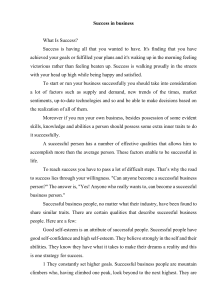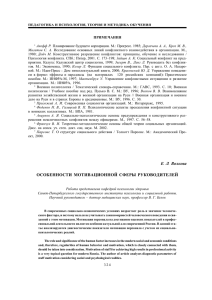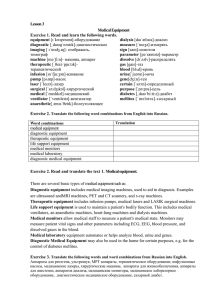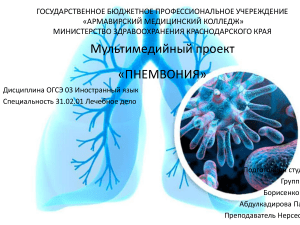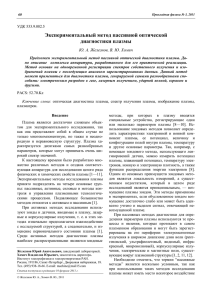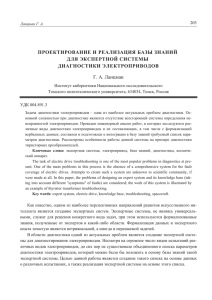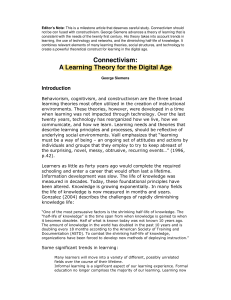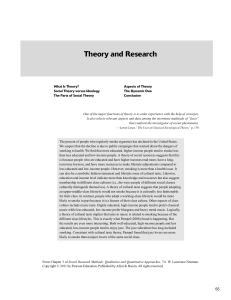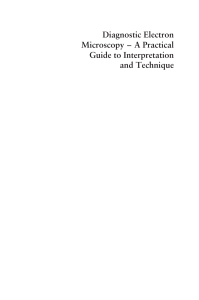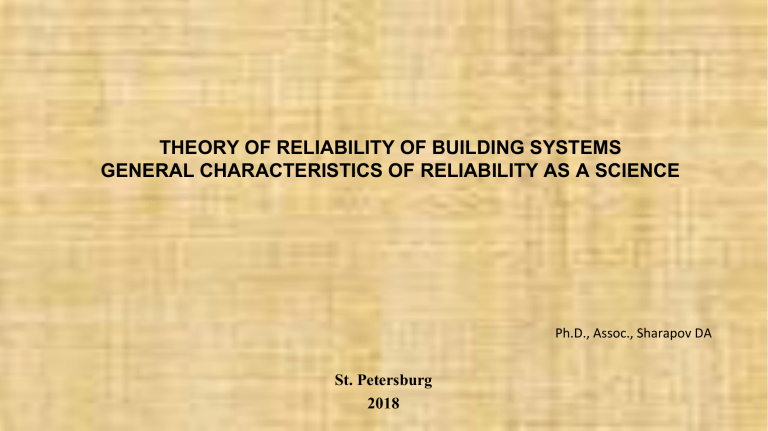
THEORY OF RELIABILITY OF BUILDING SYSTEMS GENERAL CHARACTERISTICS OF RELIABILITY AS A SCIENCE Ph.D., Assoc., Sharapov DA St. Petersburg 2018 GENERAL CHARACTERISTICS OF RELIABILITY AS SCIENCE 2 The emergence of technology and its wide application in production processes made the issue of its effectiveness topical. The efficiency of using machines is associated with their ability to perform the functions assigned to them continuously and qualitatively. However, due to breakdowns or malfunctions, the quality of the machines is reduced, there are forced downtime in their work, there is a need for repair to restore the performance and the required technical characteristics of the machines. 3 These circumstances led to the emergence of the notion of the reliability of machines and other technical means. The concept of reliability is associated with the ability of a technical means to perform the functions assigned to it for the required time and with the required quality. From the first steps of the development of technology, the task was to make the technical device such that it worked reliably. With the development and complication of technology, the problem of its reliability became more complex and developed. To solve it, the development of the scientific foundations of a new scientific direction - the science of reliability - was required. 4 Reliability characterizes the quality of the technical means. Quality - a set of properties that determine the suitability of the product for its intended use and its consumer properties. Reliability is a complex property of a technical object, which consists in its ability to perform specified functions, keeping its basic characteristics within the established limits. The concept of reliability includes reliability, durability, maintainability and safety. 5 The study of reliability as a qualitative indicator characterizing a technical device led to the emergence of the science of "Reliability". The subject of the study of science is the study of the causes of object failures, the determination of the regularities to which they obey, the development of methods for quantitative measurement of reliability, calculation and testing methods, and the development of ways and means to improve reliability. 6 Distinguish the general theory of reliability and applied reliability theories. The general theory of reliability has three components: 1. The mathematical theory of reliability. Defines the mathematical patterns to which failures and methods of quantitative measurement of reliability are subject, as well as engineering calculations of reliability indicators. 2. Statistical theory of reliability. Processing statistical reliability information. Statistical characteristics of reliability and patterns of failures. 3. The physical theory of reliability. Study of physical and chemical processes, physical causes of failures, the effect of aging and strength of materials on reliability. 7 Applied reliability theories are developed in a specific field of technology in relation to the objects of this field. For example, there is a theory of the reliability of control systems, the theory of reliability of electronic devices, the theory of reliability of machines, Reliability is related to efficiency (for example, with economic efficiency) of technology. 8 Insufficient reliability of a technical tool has the following effect: - decrease in productivity due to downtime due to breakdowns; - a decrease in the quality of the results of the use of the technical means due to the deterioration of its technical characteristics due to malfunctions; - expenses for technical equipment repairs; - loss of regularity in obtaining the result (for example, reducing the regularity of transport for vehicles); - a decrease in the level of safety of the use of the technical means. 9 Reliability is directly related to diagnostics. Diagnosis - the doctrine of methods and principles of disease recognition and diagnosis. Technical diagnostics deals with issues related to the assessment of the actual state of technical systems. The task of diagnostics is to identify and prevent the emergence of failures of technical means in order to increase their overall reliability. The process of technical diagnostics provides for the presence of a diagnostic object, diagnostic tools and human operator. During the diagnostics, measurement, control and logic operations are performed. These operations are performed by the operator using diagnostic tools to determine the actual state of the equipment. The results of the assessment are used to decide on the further use of the technical means. 10
